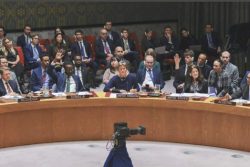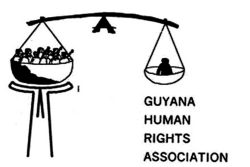The national jollification associated with the public disclosure of our May 2015 ‘first oil’ and the several others that have followed had dragged on for some time though there are indications that it is beginning to occur to us that ‘all that glitters is not gold’ and that after the confirmed oil discoveries and the commencement of oil recovery and sales there are some challenging, even unpalatable realities that we ignore at our peril.
There are the well-known environmental considerations that cause oil-producing countries to become targets for probing enthusiasts who continue to make incremental inroads in their relentless battle to push back fossil fuel recovery and the environmental considerations that derive therefrom. To some extent those issues have over-spilled onto the local oil and gas agenda with issues like our domestic gas to shore considerations already coming under the gimlet eye of our local clean earth advocates.
The environmental considerations are not the only extant ones. There has been no instance, anywhere, where major oil finds in poor countries have not triggered exalted national expectations among the poor and dispossessed, driven by what, sometimes, are images of altogether unrealistic material transformations. The pressure for transformation within wildly unrealistic time frames comes mostly from the have-nots though, ironically, the very earliest opportunities for change that arise invariably accrue to those who are better-positioned to make investments in the realization of those opportunities.
It is this that accounts for, first, the influx of a surfeit of external investors, eternal fortune seekers who are conditioned to recognize opportunities like Guyana’s oil bonanza and to bring their own resources to bear to take advantage of such opportunities. There are the locals, too, lesser entrepreneurs caught up in the sudden explosion of new opportunities afforded by the local content phenomenon and the potential for their real enrichment that it opens up.
Below these, there are often the masses with their limited but no less focused fields of dreams but with no clear perspective on how these are to be realized. They depend for the most part on the undertakings of governments that have no track record whatsoever for what one might call ‘playing in the big league’ but have little option but to do their best to stay abreast of national expectations. Here, there is considerable potential for differences of opinion, even open conflict between impatient, overly expectant populations and governments that struggle to stay abreast of popular expectations and to deliver on their own exalted undertakings.
It is circumstances like these and when all of the various socio-political blights that afflict countries like Guyana are thrown in for good measure, searching and troublesome questions inevitably arise that have to do with the integrity of government and its mindfulness for the welfare of the people and the genuineness of what are, all too often, exalted undertakings. Into these cracks seep a host of intervening considerations that raise further questions equally troublesome questions including some that have to do with whether the collectables from our oil sales are being administered in a manner that best serves the national interest, not least those matters that have to do with poverty eradication.
Those kinds of discourses are invariably attended by excursions into precedent, instances of other countries where natural resource bonanzas have frequently not become transformed into corresponding transformations for the receiving countries and more particularly for what, all too often, are the unfortunate majorities. It is no secret that these considerations are often attended by the most counterproductive conflicts.
As this editorial is being written there are already clear signs that, going forward, there will be, in our instance, differences, political ones among others, as to just what are the best options for the management of our oil monies. Intervening voices from outside our own socio-political zone have been seeking to posit options that seek to ‘ring fence’ those resources from political control. Those voices make not altogether irrelevant noises about the culture of corruption that often reposes in the ‘management style’ of poor countries, though, as it happens, there are often boisterous local constituencies of one political hue or another that are altogether prepared to shout down perspectives on the management of those resources that are not in sync with their own.
In the instance of Guyana there are already some disconcerting signs that derive from a historical culture of ingrained political division and an enduring suspicion of the motives of those who rule, ‘big brother’ if you will. So that even as we seek to persuade ourselves that our ‘oil wealth’ is taking us down a well-attended highway to prosperity it would be decidedly unwise to assume that we are embracing a fait accompli. Precedent dictates that we reject that temptation.









